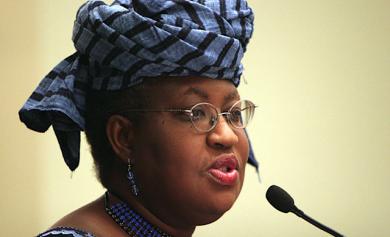
Following the persistent depression in the nation’s equity market, market operators have agreed that for the market to regain its pride of place as a centre for capital formation, the incoming finance minister, Dr Ngozi Okonjo-Iweala, must ensure that adequate funds are injected in the market to shore up investor’s confidence.
They argued that direct intervention was urgently needed to save the stock market from total collapse.
The managing director, Crane Securities Limited, Mr. Mike Eze, told LEADERSHIP at the weekend that for her appointment to bring succour to the comatose situation in the market at the moment, she must ensure that fresh funds were injected into the capital market directly.
“It is a direct intervention that market needs now and I think that should be one of the priorities that will be uppermost in her mind, because the market has been down for a time longer than normal – since 2008, and we are in 2011 – market doesn’t lie low up to this long time and we know that we are in a emerging market, and emerging markets are known for their pragmatic reaction in market situations, but our own have defied all odd.
“So the only thing that she can do as the person at the helm of affairs of the economy is to compel government to directly intervene in the market,” Eze said.
He noted that the capital market was the engine room of any economy which, if neglected, would bring down the economy.
The chief executive officer of Lambeth Trust & Investment Co Limited, Mr. David Adonri, noted that the economy was presently structured towards short-term trading activities that fuel short-term finance provided by the banking industry and said that for the capital market to blossom without suffering another hiccup, the economy, under the new minister, needed to be restructured towards long-term productive activities where the capital market was most relevant.
Adonri advised that the restructuring should begin with privatisation of government enterprises in the heavy industrial sector of the economy, and setting the stage for massive private capital formation in them.
He noted that there is need for fiscal authorities to pursue policies of balanced budgeting to reverse current crowding out of the private sector from credit due to persistent sale of government bonds and treasury bills.
Adonri who said that the secondary market had assumed a measure of stability, hovering around an All-Share Index of 24,000 points post-global financial meltdown noted that the dormancy of the primary market for equities indicates that full confidence is yet to be restored. ?

